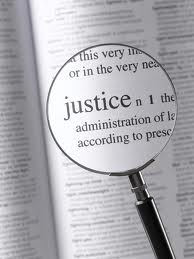 Non-disclosure and Misrepresentation.
Non-disclosure and Misrepresentation.
One of the foundations of contract is the general principle that there is no obligation to speak within the context of negotiations for an ordinary commercial contract. There are countless cases within the principle of caveat emptor in which one party to a contract has, in the course of negotiations, failed to disclose a fact known to him which the other party would have regarded as highly material, if it had been revealed.
For many years it was considered that even if a misrepresentation was made innocently, and so induced a person to enter into a contract, that person had no action for damages at all, unless he could raise it into a warranty or a collateral contract.
The Misrepresentation Act, of which sub-section 2(1) reads:
Where a person has entered into a contract after a misrepresentation has been made to him by another party thereto and as a result thereof he has suffered loss, then, if the person making the misrepresentation would be liable to damages in respect thereof had the misrepresentation been made fraudulently, that person shall be so liable notwithstanding that the misrepresentation was not made fraudulently, unless he proves that he had reasonable ground to believe and did believe up to the time the contract was made that the facts represented were true.
This act imposes responsibilities on anybody who makes a representation of fact in the course of negotiating a contract. In the first place, if the representation turns out to be wrong, he is just as liable to damages as if he had made it fraudulently, and, secondly, the burden is on him to prove that he had reasonable ground to believe and did, in fact, believe that the representation was true, before he can escape liability.
Section 18 of the Μ.I.A. 1906 deals with the question of disclosure by the assured:
Section 18.
(1) Subject to the provisions of this section, the assured must disclose to the insurer, before the contract is concluded, every material circumstance which is known to the assured, and the assured is deemed to know every circumstance which, in the ordinary course of business, ought to be known by him. If the assured fails to make such disclosure, the insurer may avoid the contract.
(2) Every circumstance is material which would influence the judgment of a prudent insurer in fixing the premium, or determining whether he will take the risk.
(3) In the absence of inquiry the following circumstances need not be disclosed, namely:
a) Any circumstance which diminishes the risk;
b) Any circumstance which is known or presumed to be known to the insurer. The insurer is presumed to know matters of common notoriety or knowledge, and matters which an insurer in the ordinary course of his business, as such, ought to know;
c) Any circumstance as to which information is waived by the insurer;
d) Any circumstance which it is superfluous to disclose by reason of any express or implied warranty.
(4) Whether any particular circumstance, which is not disclosed, be material or not is, in each case, a question of fact.
(5) The term “circumstance” includes any communication made to, or information received by, the assured.
It is to be noted that the assured is deemed to know every circumstance which, in the ordinary course of business, ought to be known by him. Even the innocent withholding of information will entitle the insurer to avoid the contract.
The circumstances which would influence the judgment of a prudent Underwriter in fixing the premium, or in determining whether he would take the risk, are by the above definition “material”. Naturally, what might influence one Underwriter would not necessarily influence another, and so the question of whether any particular circumstance is material depends upon the facts, resort being made to the courts, if necessary, to obtain a decision.
It must also be emphasised that whatever information is given it must be true, for intent to deceive will make the policy subject to avoidance even though the circumstance is not material. The assured, however, is not bound to tell the insurer every fact, but only every material fact, unless requested to elaborate on certain aspects of the risk, e.g. the type of cargo a vessel will be carrying.
The first general rule on the subject can be ascribed “… the test of materiality, which is the question whether the insurer under that policy would have regarded those facts in making the policy, should perhaps in justice to both parties have been modified in this form. Would a rational insurer governing by the principles and calculations commonly applied to policies and risks, have regarded these facts as bearing on these risks?”
This was one of the key cases to which the Marine Insurance Act gave authorative language in 1906, and for many years it was simply accepted that if a circumstance was one that would not cause an Underwriter to decline the risk or to increase the premium, it was not material.
The duty of disclosure, as defined or circumscribed by Sections 18 and 19, is one aspect of the overriding duty of the utmost good faith mentioned in Section 17. The actual insurer is thereby entitled to the disclosure to him of every fact which would influence the judgment of a prudent insurer in fixing the premium or determining whether he will take the risk. The word ‘judgment’ is used in the sense of ‘the formation of an opinion’. To prove the materiality of an undisclosed circumstance, the insurer must satisfy the Court on a balance of probability “by evidence or from the nature of the undisclosed circumstance itself” that the judgment, in this sense, of a prudent insurer would have been influenced if the circumstance in question had been disclosed.
Takis Kalogerakos
Marine Underwriter


